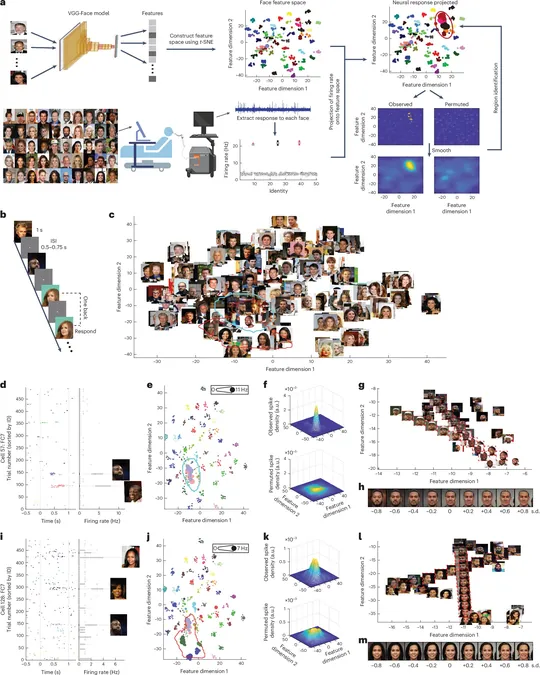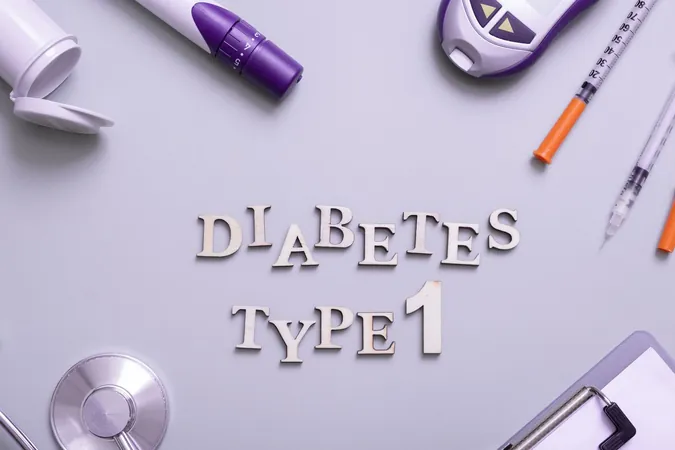
Unlocking the Brain: How Neurons in the Amygdala and Hippocampus Recognize Faces Like Never Before
2025-06-29
Author: Jia
The Fascinating Science of Face Recognition
Have you ever wondered how humans can effortlessly recognize friends, family, or even that barista who makes your coffee just right? This innate ability is crucial for forming social bonds and understanding who may pose a threat to our safety. Neuroscientists have long studied the brain's mechanisms behind this extraordinary skill, focusing primarily on the amygdala and hippocampus — regions tied to emotional processing and memory encoding.
A Groundbreaking Study Challenges Existing Beliefs
Previous research has suggested that neurons in these brain regions respond uniformly when we encounter familiar faces, regardless of visual traits. However, a revolutionary study published in *Nature Human Behaviour* contradicts this notion, revealing that specific neurons in the amygdala actively encode distinct facial features, significantly enhancing our face recognition abilities.
Inside the Groundbreaking Experiments
Led by a team from Washington University in St. Louis and West Virginia University, this study involved 19 epilepsy patients whose brains had electrodes implanted for treatment. These electrodes allowed researchers to monitor the activity of over 3,500 neurons while the patients viewed various facial images, ranging from acquaintances to complete strangers.
The Findings: Neurons That See Faces Differently
The results were astonishing. Certain neurons consistently reacted to specific facial features, regardless of how familiar the person was to the participant. This finding suggests a revolutionary idea: some neurons in the amygdala and hippocampus might not only recognize identities but also visually encode their features.
A New Class of Neurons Revealed
Researchers concluded that these "feature neurons" react to groups of faces based on shared visual characteristics rather than merely familiar concepts. The study suggests these neurons create a link between how we perceive faces and how we remember them, potentially laying the groundwork for declarative memory.
Implications for Future Research
This enlightening research could lead to a deeper understanding of face recognition and inspire new studies on neurons identified in the findings. Particularly, it may help uncover neural processes that malfunction in individuals with prosopagnosia, a cognitive disorder that makes recognizing faces challenging.
A Leap Forward in Neuroscience
As we unravel the complexities of how our brains identify faces, we gain valuable insights into human behavior, memory, and even social interaction. The implications of these findings could reshape our understanding of identity recognition and offer hope for those who struggle with facial recognition.

 Brasil (PT)
Brasil (PT)
 Canada (EN)
Canada (EN)
 Chile (ES)
Chile (ES)
 Česko (CS)
Česko (CS)
 대한민국 (KO)
대한민국 (KO)
 España (ES)
España (ES)
 France (FR)
France (FR)
 Hong Kong (EN)
Hong Kong (EN)
 Italia (IT)
Italia (IT)
 日本 (JA)
日本 (JA)
 Magyarország (HU)
Magyarország (HU)
 Norge (NO)
Norge (NO)
 Polska (PL)
Polska (PL)
 Schweiz (DE)
Schweiz (DE)
 Singapore (EN)
Singapore (EN)
 Sverige (SV)
Sverige (SV)
 Suomi (FI)
Suomi (FI)
 Türkiye (TR)
Türkiye (TR)
 الإمارات العربية المتحدة (AR)
الإمارات العربية المتحدة (AR)